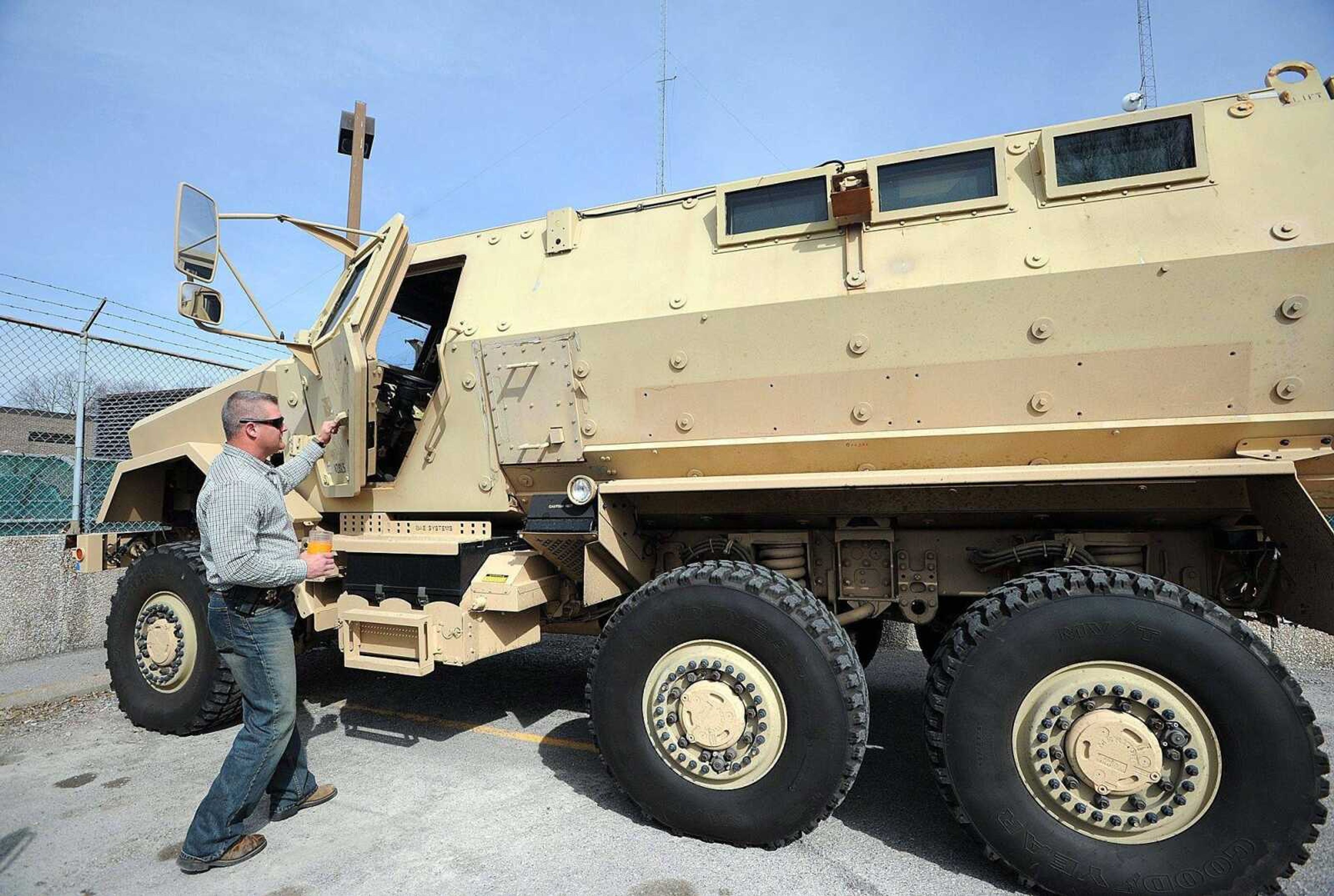Missouri senator seeks reforms for police military equipment
ST. LOUIS -- Two Democratic members of Missouri's congressional delegation said Thursday they're seeking to reform federal programs that provide military equipment to police, responding to allegations local law enforcement overreached by using armored vehicles and high-caliber weapons during Ferguson protests...
ST. LOUIS -- Two Democratic members of Missouri's congressional delegation said Thursday they're seeking to reform federal programs that provide military equipment to police, responding to allegations local law enforcement overreached by using armored vehicles and high-caliber weapons during Ferguson protests.
U.S. Sen. Claire McCaskill introduced the Protecting Communities and Police Act on Thursday, and U.S. Rep. William Lacy Clay plans to propose a companion version next week.
It would create a task force to determine what sort of equipment is suitable for police and what should be prohibited.
The bill would not reduce funding but would formalize training for use of surplus military equipment and other equipment obtained by police agencies.
It would prevent police from obtaining an armored vehicle known as an MRAP, although it would allow other kinds of armored vehicles.
The Cape Girardeau County Sheriff's Department acquired an MRAP -- an acronym for mine-resistant ambush-protected vehicle -- from the federal government last year.
At the time, sheriff's department Lt. Chris Hull said the vehicle could help deputies rescue stranded victims in the wake of floods or other natural disasters.
"It's a vehicle to get everybody home safe in," he told the Southeast Missourian in March 2014.
Hull said the vehicle also would have been useful in 2012, when officers responded to a report of an active shooter in Jackson.
Lawrence Guthrie, 48, pleaded guilty in November to three counts of assault on a law-enforcement officer in connection with the June 13, 2012, confrontation in which he was accused of exchanging gunfire with police.
With the MRAP, "we could have driven right up on him, and we'd have been done," Hull said last year.
Besides addressing the military equipment, the proposal McCaskill introduced Thursday would set aside 5 percent of grant funding from the Justice Department's Byrne-JAG grant program for body, dashboard and gun cameras -- technology that has gained popularity after several fatal shootings by police officers.
"It is incredibly important that we begin to turn the page over this conflict and the us-versus-them mentality that has developed around these policing issues in our country," McCaskill said.
Protests broke out in Ferguson, a St. Louis suburb, in August, after the shooting death of 18-year-old Michael Brown, who was black and unarmed, by a white police officer.
A St. Louis County grand jury and the U.S. Department of Justice declined to prosecute the officer, Darren Wilson, who resigned in November.
The initial protests after Brown's death, and those that followed the grand jury decision in November, often were violent.
Hundreds of police officers and the National Guard provided protection that included use of armored vehicles and other military-style equipment.
Some protesters and civil-rights advocates said police went too far in creating a militarized state in Ferguson.
Clay said the bill "directly addresses the excessive militarization of local police, which I witnessed firsthand in Ferguson."
McCaskill led hearings of the Senate Homeland Security Committee that reviewed programs providing equipment and funding to police.
She said the hearing raised concerns about lack of oversight, accountability and coordination among various programs.
McCaskill said oversight was so lax, some smaller police departments received hundreds of military weapons -- far more than they needed.
McCaskill said she worked with police agencies in crafting the bill, which has support from St. Louis St. Louis County and Kansas City police.
"We must maintain the trust of our communities while being aware of and prepared for the dangers we may face," St. Louis County police chief Jon Belmar said.
The bill also has support from several civil-rights organizations.
"Much work needs to be done to rebuild trust and the perception of integrity between many communities and their local law enforcement, and this legislation is a great leap forward," Hilary Shelton, director of the NAAACP's office in Washington and the organization's senior vice president of policy and advocacy, said in a statement.
Southeast Missourian staffer Emily Priddy contributed some information for this report.
Connect with the Southeast Missourian Newsroom:
For corrections to this story or other insights for the editor, click here. To submit a letter to the editor, click here. To learn about the Southeast Missourian’s AI Policy, click here.









